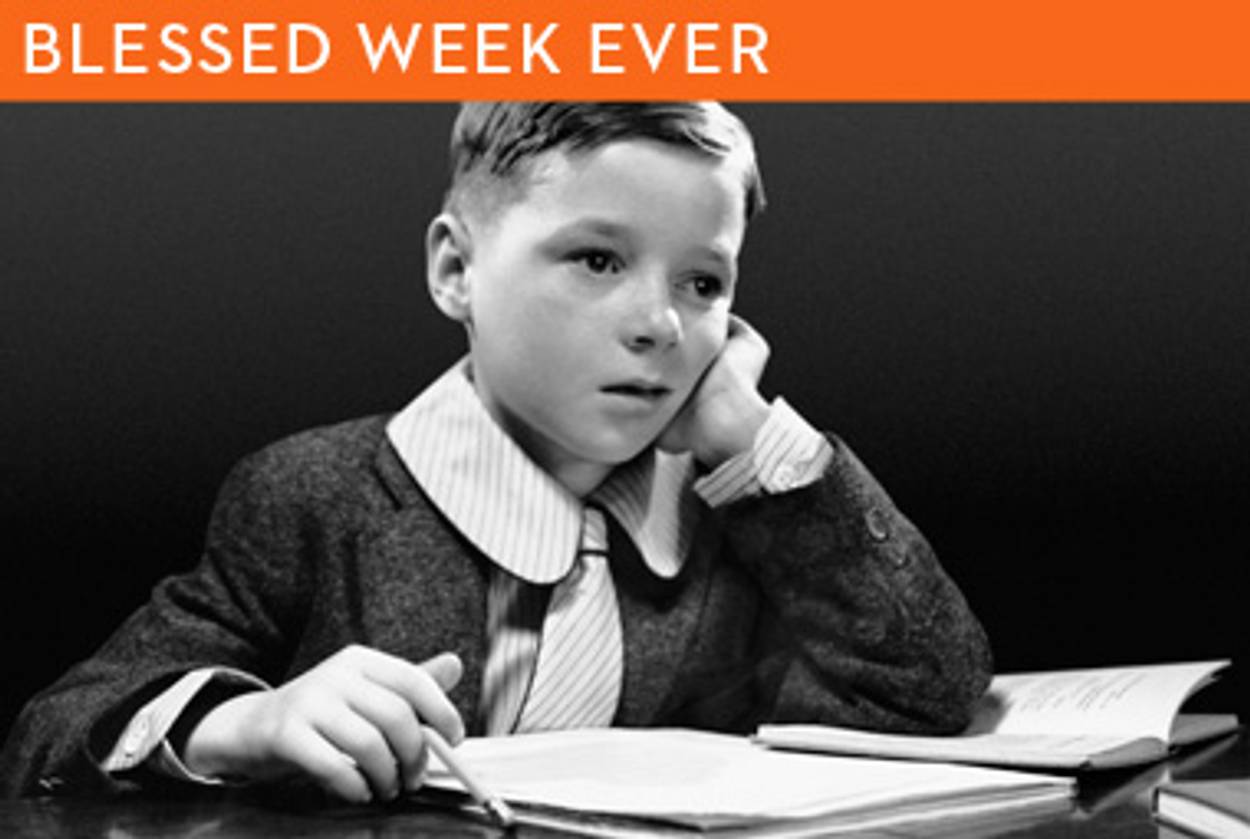Cruel to Be Kind
A haftorah of consolations and expectations




New Yorkers with access to a computer and a kid in one of the state’s public schools are likely going to spend some time next week logging on to the state Department of Education’s website and checking their child’s grades in the recent math and language arts exams, the all-important tests that serve as a major yardstick by which to measure student progress statewide.
Many of them are in for a nasty surprise. While test scores have been steadily climbing for years, a change in the exam—it was deemed too easy and altered for this year—put an end to the educational euphoria. Whereas last year, for example, 86.4 percent of students in grades three to eight were found to be proficient in mathematics, only 61 percent earned the distinction this year. Things are even worse when it comes to language arts, with the numbers diving from 77.4 percent to just above the 50 percent mark.
The dramatic dip leaves much for parents, teachers, and education experts to discuss, and it’s quite possible that other, better solutions could be devised to heal the wounded system. But there’s another, darker layer to this discussion, one that forces us to reconcile our desire to advance every child with the innate understanding most of us share that, humans being what they are, some children would inevitably be left behind.
This has as much to do with supply and demand as it does with teaching and learning: Even if the Board of Education offered its students thoughtful curricula, handsomely compensated teachers, and a magical amulet that could drown out the distractions and derisions of the environment at large, society would still channel the lion’s share of the happy graduates to jobs that pay little and demean much.
And yet we continue to soothe our children with promises and platitudes, telling them, in the language of every commencement speech ever delivered, that if they work hard and believe in themselves, there’s no limit to how far they can go. This, after all, is the American dream. But when the children grow up and discover that hard work is more likely to lead to exhaustion than it is to success, when their self-confidence curdles, when they are forced by their mortgages and dental bills and credit card debt to abandon their aspirations and come to terms with life being not much more than a series of small triumphs in an arid desert of responsibilities and routines—when they realize all that, they seethe.
Is there, then, a better vision? A subtler promise? A different dream, one that bypasses the inevitable heartbreak that comes with waking up? Isaiah seems to think so. This week’s haftorah, the fourth in a series of seven haftarot of consolation following Tisha B’Av, begins on a strange note. Aware that the people are no longer willing to heed the words of the prophets, God himself speaks through Isaiah. “I, yea I am He Who consoles you,” he thunders, and he goes on to reassure his chosen people that their salvation is at hand. Still, even God can’t help but sneak in a chiding word.
“Therefore,” he says, “hearken now to this, you poor one, and who is drunk but not from wine.” One needn’t apply a spiritual breathalyzer to decipher God’s metaphor of inebriation; the poor one who is drunk but not from wine, we can assume, is he who lacks faith, he who succumbs to doubt and despair, he who trusts in his own might but not in God’s.
Curiously, the Lord’s promise does little to comfort human beings on their own terms. It does not lull or coax. Instead, it does what the Department of Education recently did in New York—namely, apply higher standards: To the people bothered by their earthly present, God speaks of a divine future, otherworldly and hard to understand. And like the Department of Education, God isn’t interested in quick fixes. What he suggests instead is an arduous journey—“Shake yourselves from the dust,” he urges his people, “arise”—that requires tremendous effort.
In return, God offers only redemption. But if you follow this argument—Judaism’s majestic call for self-reliance—to its logical end, you’ll see that redemption really only comes to those who redeem themselves. No celestial trophies are on offer here, no rewards for good behavior. Only this: Be good and the world will become a bit better. And that’s all the reward we can ask for. That’s salvation.
Educators would do well to adopt a similar approach. Rather than obsess over test scores and promise students the skies, they should pursue a more sober and more sustainable goal. They should tell students that there would most likely be no golden gates at journey’s end, no fulfilling job or stellar salary. And they should tell them to work hard regardless, and have faith nonetheless, because working hard and having faith are the very things that make one’s life better. It may not be much, but, more often than not, it’s all that we’ve got.
Liel Leibovitz is a senior writer for Tablet Magazine and a host of the Unorthodox podcast.
Liel Leibovitz is editor-at-large for Tablet Magazine and a host of its weekly culture podcast Unorthodox and daily Talmud podcast Take One. He is the editor of Zionism: The Tablet Guide.